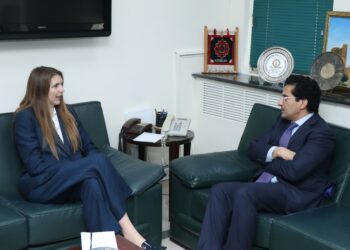ISLAMABAD: The PDM-2 Government led by Prime Minister Shahbaz Sharif has opted to use the same powerful circles to pressurize Independent Power Producers (IPPs) that were employed by the Imran Khan government in 2021.
Initially, these circles visited various plants to collect records and data. They have now begun contacting IPP owners, urging them to agree to revised terms on their contracts, citing substantial amounts of money already received, both legally and otherwise.
In the first phase, IPPs established under the 1994, 2002, and 2006 policies have been summoned and presented with ‘missing links’ in their documentation and the substantial profits derived from these documents. This approach has alarmed IPP owners.
Energy sector investors believe that the government’s focus on politics at the expense of investment is detrimental. They argue that “the manner in which capacity payments to power producers are being handled is unfortunate,” and this is indeed a major understatement. Addressing a technical issue with political motivations at its core risks discouraging foreign investment in the country for years to come.
Minister for Power Awais Leghari has informed a parliamentary panel that approximately 50-60 experts are meticulously reviewing every aspect of the power plant agreements to determine how the government should proceed. The politicization of the issue by various interest groups, placing blame on investors who made critical investments during a time of need, will likely deter future investments.
Although Minister Leghari has assured the parliamentary panel that the government will not unilaterally alter IPP contracts, there are concerns about the use of pressure tactics to force IPP owners into compliance with negotiators’ demands. This was highlighted in discussions with leading power sector investors in Pakistan.
One senior executive in the sector noted, “The issue of capacity charges boils down to Rs. 18 per unit. Out of these Rs. 18, around Rs. 12 per unit is allocated to payments for government-sponsored generation units, including 4 RLNG-fired plants, nuclear, hydel, wind, and bagasse-based plants. Of the remaining,
approximately Rs. 4.60 goes to capacity payments for Thar Coal-based and CPEC coal-based plants installed by Chinese investors. The share of IPPs in capacity payments amounts to Rs. 1.39 per unit. Even if all capacity payments to plants installed under the 1994 policy were removed, the impact would only be Rs. 0.54 per unit, and an additional Rs. 0.85 per unit for all 12 plants under the 2002 policy.”
This analysis indicates that even if the government succeeds in closing down all IPPs established under the 1994 and 2002 policies, the potential savings may be minimal. However, this would severely erode investor confidence and undermine faith in policies, making it unlikely that anyone would invest in a country where sovereign guarantees offer no protection.
The primary cost escalation is attributed to the appreciation of the dollar against the Pakistani Rupee. When the first plants were installed under the 1994 policy, the rupee-dollar parity was Rs. 40 to a dollar. By the time the last plants were installed, it had risen to Rs. 105 to a dollar. The economic contraction has reduced consumption and increased the burden of capacity payments on the government.
The decline in electricity consumption is primarily due to the country’s economic performance, the closure of industries, extensive solarization, and higher prices. When the economy recovers, capacity payments will be distributed across higher production numbers, easing the burden on smaller users. However, the power generation growth has been negative for the past two years, leading to idle capacity and increased energy costs. The installed capacity grew significantly from 2017 to 2023 (approximately 17,000 MW), coinciding with the economy’s downturn.
Inefficiencies in the transmission and distribution system (T&D losses) and under-recovery by DISCOs are major contributors to rising energy costs. During the first half of 2023-24, electricity distribution faced losses and inefficiencies amounting to Rs. 77 billion, compared to Rs. 62 billion during the same period in 2022-23.
Private sector power generators feel that the government’s push to renegotiate IPP contracts, which were last revised in 2021, is more about appealing to certain interest groups and improving the government’s image than achieving material benefits for the common person. This exercise, they argue, could severely damage the country’s reputation as an investment destination.















